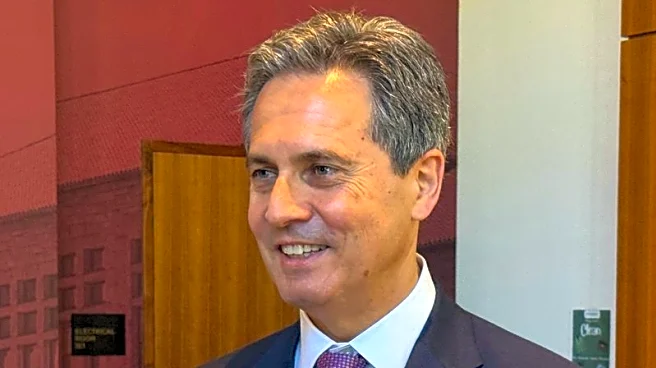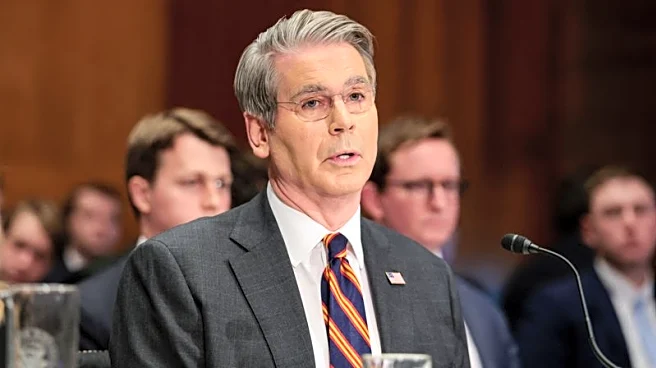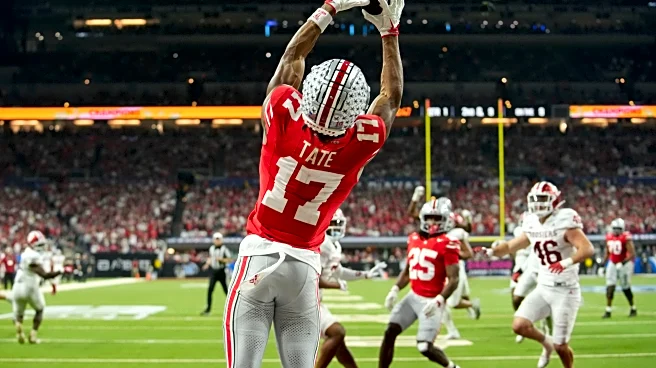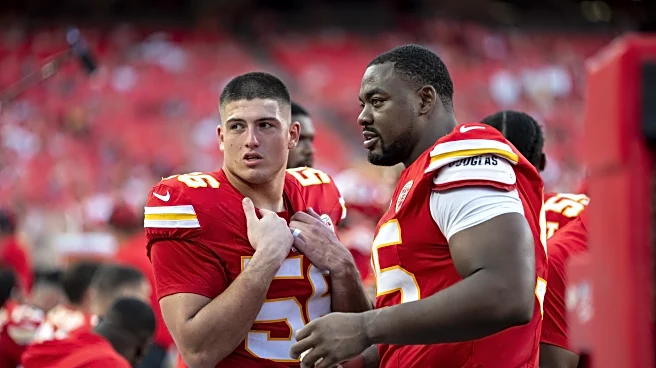By Michael S. Derby
(Reuters) -St. Louis Federal Reserve President Alberto Musalem said on Wednesday the U.S. central bank's monetary policy is in the right place given current economic data, in remarks
that did not give a clear signal whether he supports an interest rate cut later this month.
"The current modestly restrictive setting of the policy rate is consistent with today's full-employment labor market and core inflation nearly one percentage point above the Fed's 2% target," Musalem said in the text of a speech to be delivered to an event at the Peterson Institute for International Economics.
Looking ahead, Musalem indicated he needs more data to decide where he believes monetary policy should go.
"I will continue to update my outlook and my assessment of the balance of risks to seek a forward-looking path of interest rates that best positions monetary policy for achieving and maintaining maximum employment and price stability for all Americans," he said.
Musalem was speaking ahead of the Fed's September 16-17 policy meeting, when it is broadly expected to cut its benchmark interest rate by a quarter of a percentage point from the current 4.25%-4.50% range. Fed Chair Jerome Powell late last month indicated such a move was possible.
The case for cutting rates rests on worries the job market is at risk of a notable weakening, even as inflation remains above the Fed's 2% target and is likely to get worse due to President Donald Trump's tariffs on imports. The U.S. government is scheduled on Friday to release its closely-watched monthly employment report, which will provide Fed officials with a crucial piece of data before their rates decision.
A number of Fed officials, however, have over the last few weeks shown skepticism over the need to cut rates, given the current level of inflation in the economy.
In his remarks, Musalem explained that the Fed will need to balance its job and inflation mandates going forward. He said the job market is at full employment right now, but added, "I expect the labor market to gradually cool and remain near full employment with risks tilted to the downside."
Musalem also said a variety of increases in underlying unemployment measures as well as recent downward revisions to data "have further increased my perception of downside risks to the labor market."
As for the inflation outlook, Musalem said tariffs are likely to represent a passing squall for the economy, with the impact of the rise in import taxes working through the economy over the next two to three quarters.
"The impact on inflation will fade after that," Musalem said, adding that "below-trend real GDP growth and stable longer-term inflation expectations should limit the persistence of inflation."
Musalem also said the Fed's inflation target is in sight. "I expect inflation will resume convergence toward 2% in the second half of 2026," he said while noting that "I perceive a reasonable possibility that above-target inflation could be more persistent."
(Reporting by Michael S. Derby; Editing by Paul Simao)










